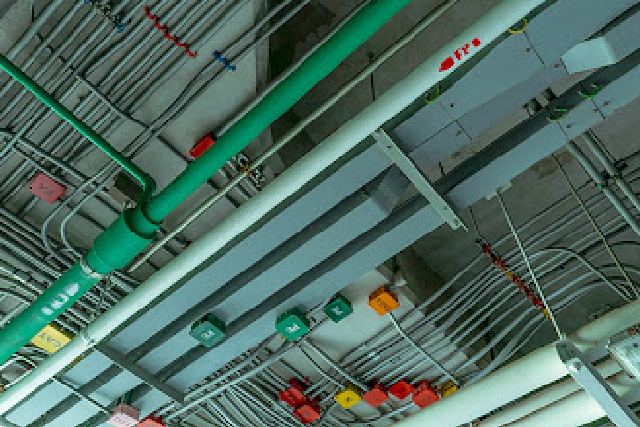
21 Oct PVC Conduit: A Reliable Solution For Electrical Installations
PVC conduit (Polyvinyl Chloride conduit) is one of the most widely used systems for protecting and routing electrical wiring. Known for its affordability, corrosion resistance, and ease of installation, PVC conduit is a preferred choice in residential, commercial, and industrial projects.
Why PVC conduit?
✅ Cost-effective – Save on both material and labour compared to traditional metal conduit.
✅ Durable & weather-resistant – Built to withstand moisture, corrosion, and harsh site conditions.
✅ Safe & insulated – Non-conductive, reducing the risk of electrical hazards.
✅ Lightweight & easy to install – Cuts project time with simple handling and faster installation.
Types of PVC conduit
Picking the right PVC conduit type is essential for ensuring proper protection, efficiency, and longevity of electrical wiring systems.
- Rigid PVC conduit (RPVC): Strong and durable, suitable for underground and outdoor use.
- Flexible PVC conduit: Provides bendability for tight spaces and complex wiring paths.
- Corrugated PVC conduit: Lightweight and easy to handle, ideal for concealed wiring.
When paired with the right PVC pipe fitting in Singapore, these conduits form a complete, reliable solution for both small-scale and large-scale projects.
Advantages
- Cost-effective: Lower material and installation costs compared to metal.
- Corrosion resistant: Unlike steel, PVC won’t rust when exposed to moisture or chemicals.
- Lightweight: Easy to transport, cut, and install.
- Electrical insulation: Naturally non-conductive, improving safety.
Applications
- Residential housing (concealed wiring in walls and ceilings)
- Industrial facilities (chemical plants, warehouses)
- Outdoor and underground installations
- Infrastructure projects (tunnels, rail systems, utilities)
Standards & compliance
PVC conduits are manufactured in compliance with international standards such as IEC 61386 and NEC Article 352. In Singapore, conduits must also meet SS 145: Part 2 requirements for safety and performance.
Conclusion
Whether for simple home wiring or large-scale infrastructure, PVC conduit delivers an excellent balance of performance, safety, and cost savings. With proper installation, it ensures long-term protection for electrical systems in a wide range of environments.
